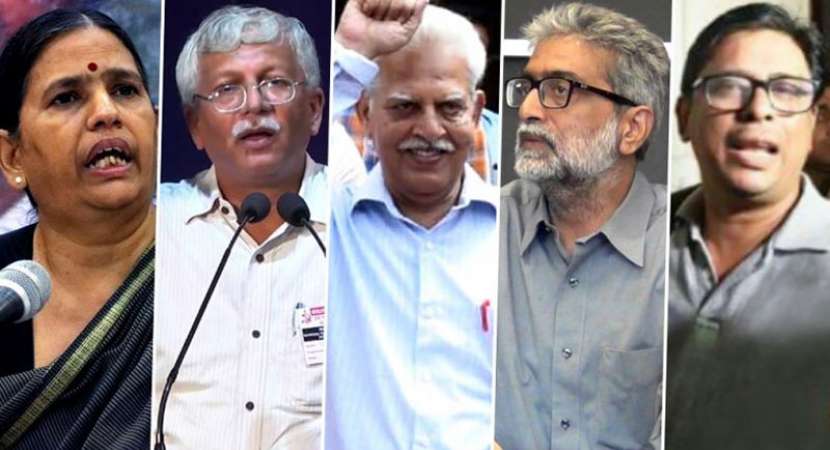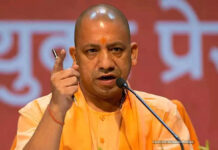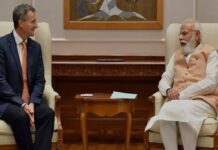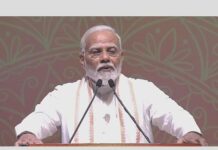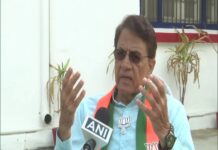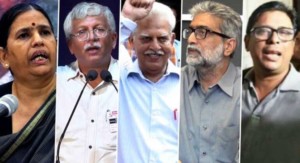
NEW DELHI: Five human rights activists arrested in connection with the Bhima-Koregaon violence case would be kept under house arrest at their homes till September 6, the Supreme Court ordered, observing that dissent was the “safety valve” of democracy.
While granting relief to activists Varavara Rao, Arun Farreira, Vernon Gonzalves, Sudha Bhardwaj and Gautam Navalakha, the top court did not consider for now the vehement opposition of Maharastra government challenging the locus of the petitioners, historian Romila Thapar and four others, seeking relief on their behalf, and calling them “strangers”.
The Maharashtra police had arrested them in connection with an FIR lodged following a conclave – ‘Elgaar Parishad’ – held on December 31 last year that had later triggered violence at Koregaon-Bhima village. The state had challenged the petitioners’ locus, dubbing them as “strangers”. A bench headed by Chief Justice Dipak Misra questioned the state police’s move to arrest these activists nine months after the incident and said that all of them were reputed citizens and “stifling the dissent” was not good.
“Dissent is the safety valve of democracy and if you don’t allow these safety valves, it will burst,” the bench, also comprising Justices A M Khanwilkar and D Y Chandrachud, said in a packed courtroom. Taking a strong note of the submissions of the state government, it said, “This (arrest) is a wider issue. Their (petitioners’) problem is quelling dissent.”
“Nine months after Bhima-Koregaon, you go and arrest these people,” the bench asked, while taking serious note of Maharashtra’s plea that they were arrested in pursuance of an FIR. Issuing notice to the Maharashtra government and its police, the bench considered the submissions of senior advocate Abhishek Manu Singhvi, appearing for the petitioners, that the arrested activists be kept in house arrest.
He said two of the five arrested persons –Sudha Bhardwaj and Gautam Navalakha – were currently under house arrest following the orders passed by two high courts while the three others were on transit remand. Singhvi said as an interim measure, all the five be kept under “house arrest in their own homes”. The plea was accepted by the bench which, however, said that all the contentions of the parties would be kept open. Singhvi said the nationwide raids and the arrests made by Maharashtra Police after nine months of registration of the FIR have had a “chilling effect” on the personal life and liberty of citizens having dissenting voice.
“Can they do massive sweeping raids and arrest these respectable citizens,” he asked, adding “there is a panic situation”. He said none of these five arrested persons were named as accused in the FIR lodged in the Bhima-Koregaon violence.
“We, the petitioners, are concerned with what has happened,” he said, adding that the arrests were made as if these persons “are a great threat to this great government”. Singhvi also said if citizens were arrested like this, then this would be “the end of democracy.”
Besides Singhvi, a battery of lawyers including senior advocates Rajeev Dhavan, Indira Jaising and Dushyant Dave and lawyers Prashant Bhushan and Vrinda Grover vehemently opposed the Maharashtra Police’s action in the matter. Additional Solicitor General Tushar Mehta and Maharashtra government’s counsel Nishant Katneshwarkar opposed the plea and termed the petitioners as “strangers” to the litigation on the ground that the arrested accused has already taken legal recourse at various courts in the country.
Without disputing the social standing of the petitioners like Romila Thapar, the law officer said “some strangers are before this court and no accused is before this court. They (petitioners) are seeking relief against arrest on their (accused) behalf”. “It is a strange argument that you stay the arrest of somebody else,” Mehta said, adding “kindly hear us on the maintainability of this petition. Strangers cannot seek anticipatory bail for somebody else”.
Mehta also told the bench that some of these accused were earlier in jail, a contention which was opposed by the petitioners. The court, during the half-an-hour hearing which ended at 5 PM, said it would like to know the allegations and materials against the accused persons. The bench asked the state government to respond to the petition and gave liberty to the petitioners to file rejoinders, if any, and posted the matter for hearing on September 6.
During the hearing, Dhavan termed the arrests as “random” and said he has been funding an organization being run by one of the arrested persons and all of them were of impeccable integrity. While Dave said if arrests were made like this, “then nobody will be safe”, Jaising said one of her former junior lawyers was also arrested and she would file a separate application on it. Grover sought that the transit remand of these accused must be stayed by the apex court.
The plea, by Thapar, economists Prabhat Patnaik and Devaki Jain, sociology professor Satish Deshpandey and human rights lawyer Maja Daruwala, has sought an independent probe into the arrests and their immediate release. Prominent Telugu poet Varavara Rao was arrested from Hyderabad, while activists Vernon Gonzalves and Arun Farreira were nabbed from Mumbai, trade union activist Sudha Bhardwaj from Faridabad in Haryana and civil liberties activist Gautam Navalakha was arrested from New Delhi. PTI

